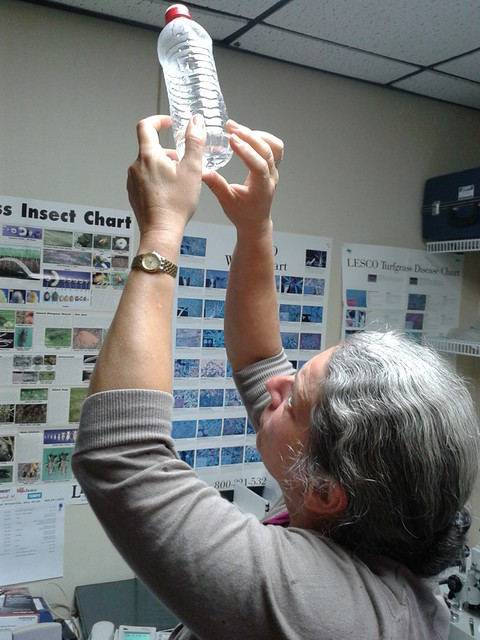We already knew Argentinian farmers were suing Monsanto about Roundup-induced birth defects, including cerebral palsy, down syndrome, psychomotor retardation, missing fingers, and blindness; we knew Roundup’s active ingredient glyphosate was “a risk factor for developing Non-Hodgkin lymphoma”; we knew that Roundup-ready corn causes liver and kidney damage in rats and chickens fed feed including Monsanto corn show abnormal gene expression, and we knew that Roundup-ready corn is toxic to humans. Add to all that: Roundup is a risk for Parkinson’s disease.
Sayer Ji wrote for GreenMediaInfo 18 April 2012, Roundup Herbicide Linked To Parkinson’s-Related Brain Damage,
Continue readingAlarming new research published in the journal Neurotoxicology and Teratology
supports the emerging connection between glyphosate, the active ingredient in Roundup herbicide, and neurodegenerative conditions such as Parkinson’s disease and Parkinsonian disorders.
Published this month (April, 2012), the new study entitled “Glyphosate induced cell death through apoptotic and authophagic mechanisms,” investigated the potential brain-damaging effects of herbicides, which the authors stated “have been recognized as the main environmental factor associated with neurodegenerative disorders, such as Parkinson’s disease.”1
They found that glyphosate inhibited the viability of differentiated test cells (PC12, adrenal medula derived), in both dose-and-time dependent manners. The researchers also found that “glyphosate induced cell death via authophagy pathways in addition to activating apoptotic pathways.”
Roundup herbicide is now a ubiquitous contaminant in our air, rain, groundwater, and food, making complete avoidance near impossible. A growing body of experimental evidence now indicates that it in addition to its neurotoxicity it also has the following.
Modes of Toxicity












 Some people didn’t like the source of a recent post about
the toxic effects of agrochemicals and GM plants on the environment,
plants, animals, and people.
There are plenty of other sources, including:
Some people didn’t like the source of a recent post about
the toxic effects of agrochemicals and GM plants on the environment,
plants, animals, and people.
There are plenty of other sources, including: